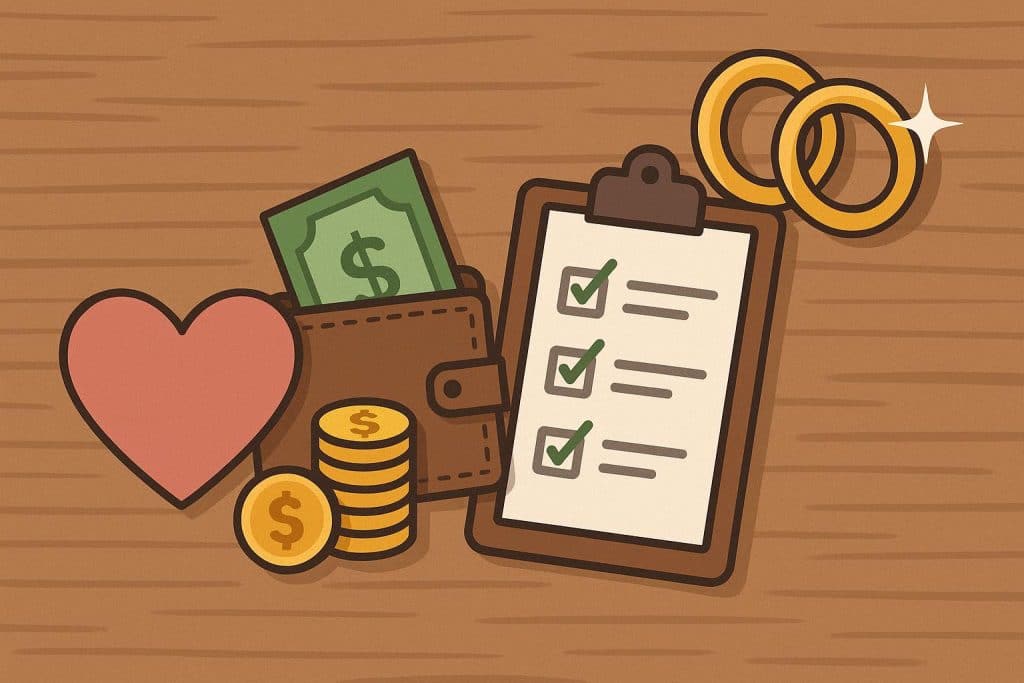Look, nobody wants to think about the possibility of things going south when they’re planning their happily ever after. But here’s the thing – nearly half of marriages end in divorce. And you know what the number one cause is? Money problems.
I was chatting with a lawyer friend from Family Law Partners Central Coast last week, and she told me something that really stuck. She said most of the messiest divorces she handles could have been avoided if couples just had honest money talks before saying “I do.” Not exactly romantic dinner conversation, but it beats arguing over who gets the house later.
So lets talk about why financial transparency matters in relationships and how to protect yourself without being a total buzzkill about it.
The Money Talk Nobody Wants to Have
You meet someone. Sparks fly. Before you know it, you’re picking out curtains together and arguing about whether to get the expensive coffee maker. But somewhere between the first date and moving in together, most couples skip a pretty important conversation.
What happens if things dont work out?
I know, I know. Even typing that feels like bad juju. But ignoring financial realities doesn’t make them disappear. It just makes them more expensive to deal with later.
Here’s what smart couples are doing instead. They’re sitting down – maybe over that expensive coffee – and having real conversations about money. Not just “who pays for dinner” stuff. The big stuff.
What You Actually Need to Talk About
First up, debt. If your partner has $50,000 in student loans or maxed out credit cards, you need to know. Not because its a dealbreaker, but because it affects your shared financial future. Will you help pay it off? Keep finances separate? These arent fun conversations but they’re necessary ones.
Then there’s assets. Maybe you’ve got a house from before the relationship. Or an investment account your grandma left you. How do you want to handle that if you get married? In some places, everything becomes joint property the moment you say “I do.” In others, premarital assets stay separate. But only if you handle it right.
Income disparities matter too. If one person makes three times what the other does, how do you split expenses? 50/50 might seem fair until someone’s eating ramen while the other’s ordering sushi. Proportional splits based on income often work better, but you gotta talk about it.
The P-Word: Prenups
Yeah, I said it. Prenuptial agreements. They’ve got a bad rap, like you’re planning for failure before you even start. But think about it differently. You get car insurance hoping you’ll never need it, right? A prenup is just relationship insurance.
And its not just for rich people anymore. Got a small business? Family heirloom? Even just want to protect your retirement savings? A prenup can cover all that. Plus, the process of creating one forces you to have all those money conversations you’ve been avoiding.
The key is timing. Dont spring it on someone two weeks before the wedding. Start the conversation early, when you’re talking about other future stuff like kids and where to live. Make it part of your general “building a life together” discussions.
Beyond the Legal Stuff
But protecting yourself financially isn’t just about legal documents. Its about building good money habits together. Set up regular money dates – yeah, that’s a thing – where you review finances together. No surprises, no secrets.
Create shared goals. Maybe its buying a house, starting a business, or just taking that trip to Italy. When you’re working toward something together, money conversations become less about “mine vs yours” and more about “how do we get there?”
And please, for the love of all that is holy, maintain some financial independence. Keep at least one account in just your name. Build your own credit. Know where all the important documents are. This isn’t about not trusting your partner – its about being a responsible adult.
When Things Get Complicated
Sometimes relationships involve more complex financial situations. Blended families, business partnerships, international assets. The more complicated your situation, the more important it is to get professional advice.
A good family lawyer can help you understand your rights and options before you need them. Financial advisors can help structure things to protect both parties. Its not cynical – its smart.
The Bottom Line
Talking about money in relationships is awkward. But you know what’s more awkward? Finding out your partner has secret debt after you’ve combined finances. Or discovering you have different ideas about financial priorities after you’ve already bought a house together.
The couples who make it long term aren’t the ones who never talk about money. They’re the ones who talk about it honestly, plan together, and protect themselves while building something together.
Love might be blind, but it doesn’t have to be financially stupid. Have the hard conversations now. Your future self – whether married or single – will thank you.
